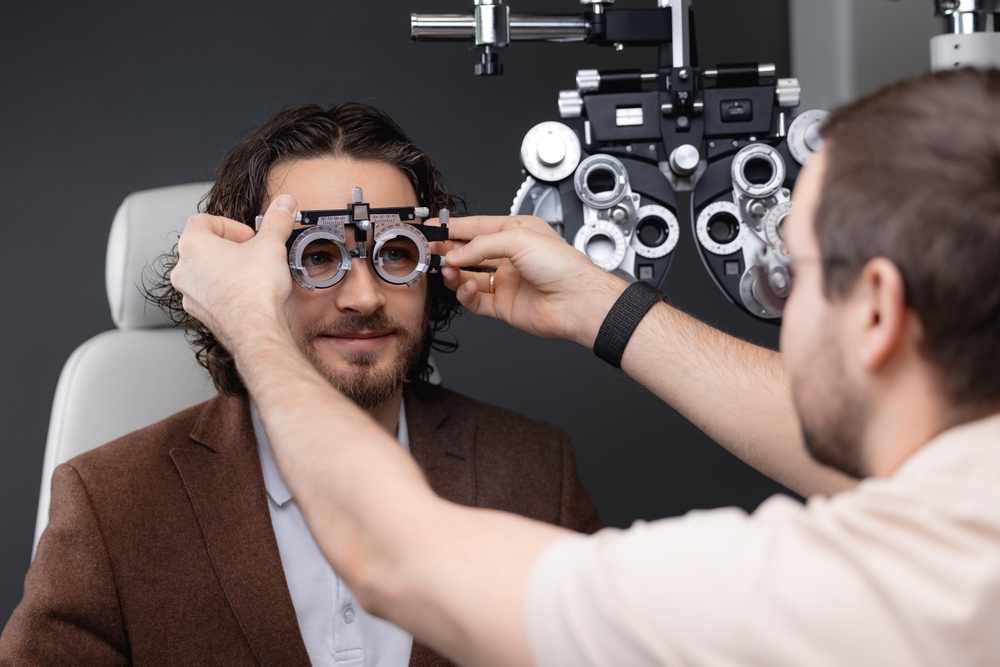
Understanding the Different Types of Eye Tests and What They Reveal
When you schedule an eye exam, you're taking an essential step toward maintaining healthy vision and overall well-being. Eye exams go beyond simply checking if you need glasses or contact lenses; they can reveal a range of health issues, both ocular and systemic. At Family Vision Clinic, we believe in educating our patients about the different types of eye tests and what they reveal, so you can feel confident and informed during your exam.
Visual Acuity Test
The visual acuity test is perhaps the most well-known eye exam. This test measures how clearly you can see by having you read a standardized eye chart. You'll be asked to read lines of letters that gradually decrease in size from a set distance. This test helps determine whether you need corrective lenses for nearsightedness, farsightedness, or astigmatism.
Refraction Test
If you’ve ever been asked, "Which is better, lens one or lens two?" during an exam, you've experienced a refraction test. This test measures the refractive error in your eyes, helping your optometrist determine the right prescription for eyeglasses or contact lenses. It also helps diagnose conditions like myopia and hyperopia.
Slit-Lamp Exam
The slit-lamp exam allows your optometrist to take a closer look at the front and back of your eye, including the cornea, iris, lens, and retina. This detailed inspection can reveal various eye conditions like cataracts, corneal injuries, macular degeneration, and even signs of retinal detachment. This test is essential for early detection of issues that could potentially lead to vision loss if left untreated.
Tonometry Test
A tonometry test measures the pressure inside your eye (intraocular pressure) and is crucial for diagnosing glaucoma. During this test, a small puff of air is blown into your eye, or a special device lightly touches the surface of your eye, to measure pressure. High eye pressure can indicate an increased risk for glaucoma, a condition that can damage the optic nerve and lead to blindness.
Pupil Dilation
Pupil dilation involves using special drops to widen your pupils, allowing your optometrist to examine the retina and optic nerve more closely. Dilating your pupils gives your doctor a better view of the back of your eye, helping to detect conditions such as diabetic retinopathy, macular degeneration, and other retinal diseases.
Retinal Imaging
Retinal imaging uses advanced technology to take a detailed photograph of the back of your eye, including the retina, optic disc, and blood vessels. This test is often used to detect early signs of conditions like diabetes, hypertension, and macular degeneration. By capturing high-resolution images, your optometrist can monitor changes in your eyes over time and track disease progression.
Color Vision Testing
Color vision testing evaluates your ability to distinguish between different colors and shades. This test is essential for diagnosing color blindness, which can impact certain daily activities. While color blindness is often inherited, it can also result from certain eye diseases, so it's important to have this test if you experience difficulty distinguishing colors.
Visual Field Test
A visual field test checks your peripheral vision, helping to identify blind spots in your field of vision. These blind spots can indicate eye diseases such as glaucoma or retinal conditions. Additionally, certain neurological conditions, including brain tumors or strokes, can also affect your visual field.
Keratometry
Keratometry measures the curvature of your cornea, the clear outer layer of your eye. This test helps diagnose conditions like astigmatism, where the cornea has an irregular shape that can cause blurred vision. Accurate keratometry readings are also essential for fitting contact lenses.
Schedule Your Comprehensive Eye Exam with Family Vision Clinic Today
At Family Vision Clinic, your eye health is our priority. Whether you're coming in for a routine check-up or experiencing specific symptoms, a comprehensive eye exam involving multiple tests can help detect vision issues and underlying health problems early. By understanding the different types of eye tests and what they reveal, you're taking an important step toward preserving your eyesight and overall health.
Schedule your next eye exam with Family Vision Clinic to keep your vision sharp and your eyes healthy. Visit our office in Wilmington, North Carolina, or call (910) 392-4414 to book an appointment today.









